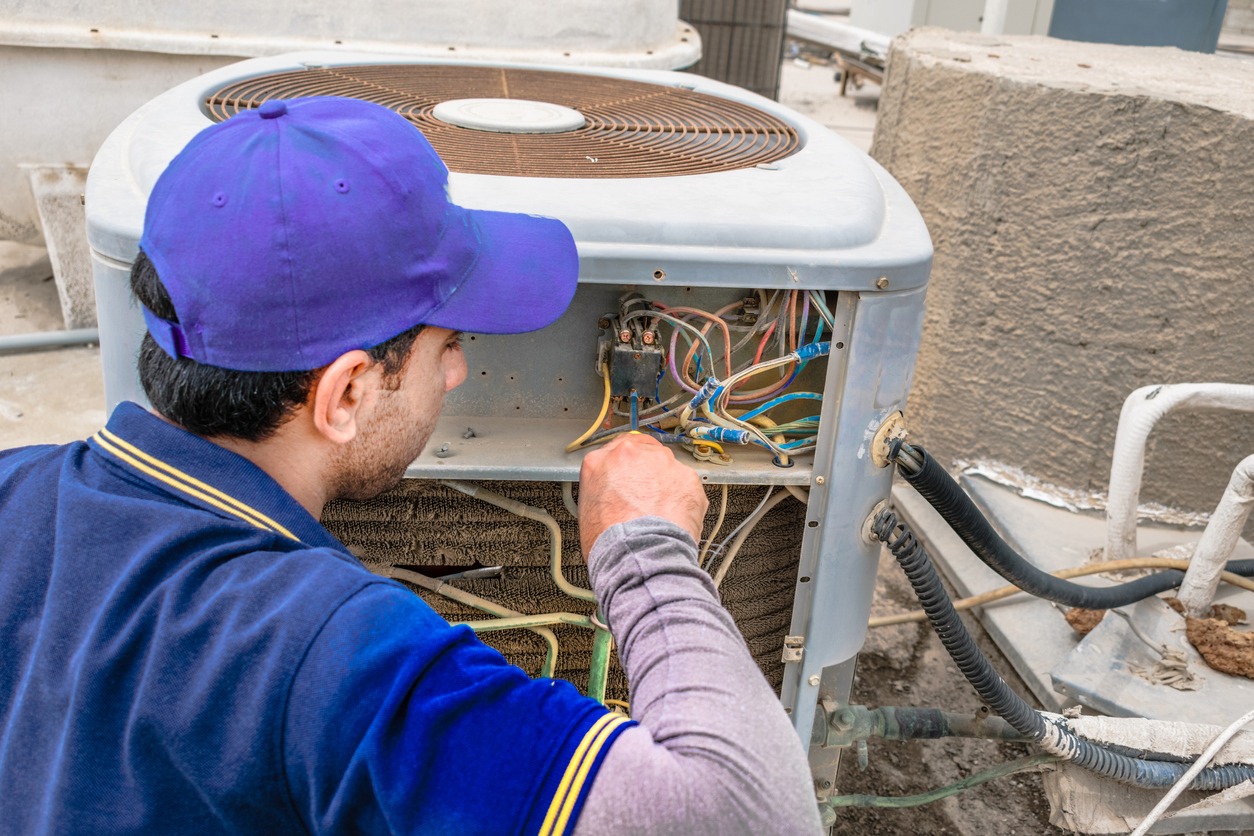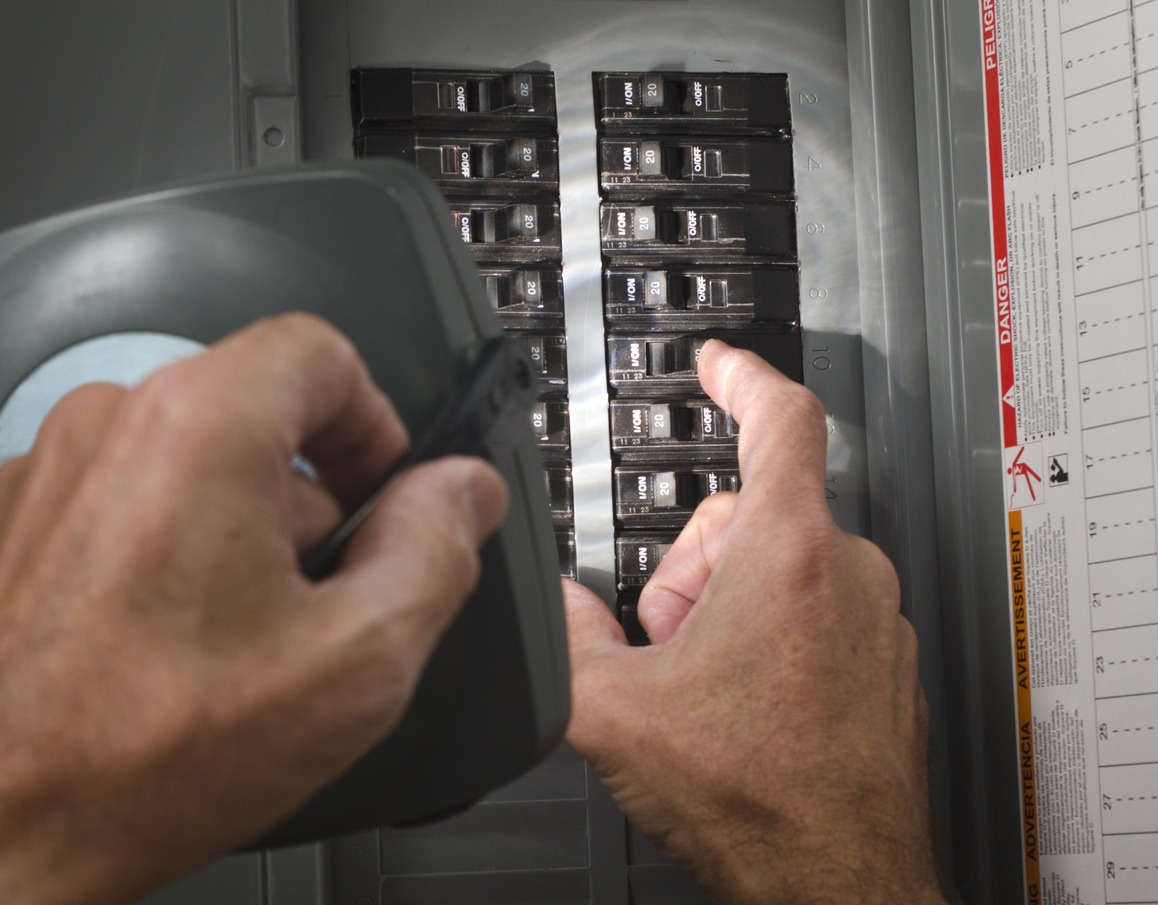Faulty AC electrical wiring is a critical issue that can lead to inefficiency, safety hazards, and costly repairs if not addressed promptly. Homeowners and business proprietors alike should be vigilant in recognizing the early warning signs of electrical problems to prevent potential dangers and disruptions. This article serves as a guide to identifying common symptoms of faulty wiring specifically related to air conditioning systems. Understanding these signs is essential for maintaining a safe and comfortable environment, as well as ensuring that your AC unit operates at peak efficiency. Whether you’re experiencing unexplained issues with your AC or simply wish to be proactive, the insights provided here will equip you with the knowledge to spot trouble before it escalates.
Telltale Signs of Faulty AC Electrical Wiring
When it comes to your air conditioning system, the electrical wiring is the silent powerhouse behind the scenes. However, when issues arise within this critical network, they can manifest in ways that are subtle yet alarming. Homeowners should be vigilant for a spectrum of indicators that hint at wiring malfunctions. These can range from the electrical interruptions, like the unexpected engagement of circuit breakers, to sensory warnings such as acrid odors or distinct buzzing sounds that suggest the system is straining under electrical overload. Another red flag is the physical deterioration of wires, which can be a clear harbinger of trouble. Additionally, inexplicable surges in your energy costs could be signaling a deeper issue with your AC’s electrical circuitry. In certain locales, environmental elements like corrosion, often exacerbated by moist or saline air, can also contribute to wiring degradation. Early detection of these symptoms can avert more dire consequences, including the risk of electrical fires or a total breakdown of your cooling system. Recognizing the right moment to call in the experts and the value of consistent upkeep is crucial for the safety and efficiency of your AC unit.
Circuit Breaker Trips and GFCI Alerts
A clear sign that your AC’s electrical wiring might be compromised is the repeated tripping of circuit breakers or the activation of Ground Fault Circuit Interrupter (GFCI) outlets. These devices are your home’s first line of defense against electrical hazards, cutting off power when they detect anomalies in the current’s flow.
Circuit breakers may disengage for various reasons linked to your AC, such as excessive power consumption, short circuits from worn or intersecting wires, or ground faults that cause current to stray from its intended route. An occasional trip may not be cause for alarm, but if your circuit breaker is persistently triggered by your air conditioner’s operation, it’s a strong indication of a wiring defect.
Likewise, a GFCI outlet, which monitors the current’s journey in and out, will disconnect the circuit to prevent potential hazards if it senses any imbalance—a possible sign of a ground fault within your AC system. Should you find that your GFCI outlet is frequently tripped by your air conditioner, this is a red flag that should not be ignored.
Persistent tripping can lead to the degradation of these protective devices, which can leave your system defenseless against more extensive damage. Therefore, it’s imperative to heed these early warnings and seek the expertise of a professional to pinpoint and fix the wiring issues. As we’ve discussed, overlooking these signs can have serious repercussions for both your air conditioning system and your home’s safety.
Unusual Smells and Sounds
A whiff of something burning or an unexpected noise from your AC unit could be a red flag signaling electrical malfunctions. These sensory alerts are critical in preempting more severe complications.
The scent of something burning, particularly reminiscent of charred wiring or melting plastic, is a serious concern. This odor indicates that the insulation around wires may be deteriorating due to excessive heat. When you detect such a smell, it’s crucial to act swiftly: shut down your AC system and consult a professional without delay, as this could be a precursor to a fire hazard.
Should you encounter a musty or ozone-like odor, it’s possible that mold has taken hold within your ductwork, or electrical components are reaching high temperatures without visible signs of burning. Both scenarios warrant a professional assessment.
Auditory clues also play a pivotal role in diagnosing electrical issues. A persistent buzzing or humming sound could suggest that connections within the AC unit are loose, leading to an unstable current. This vibration of wires or terminals often manifests as a low buzzing noise. Although not as dire as the smell of burning, these sounds can indicate that certain components are on the brink of failure.
Moreover, while a clicking noise at startup or shutdown can be typical, frequent or continuous clicking during operation is atypical and could point to a defective relay or other electrical anomalies. Such irregularities should be evaluated by a specialist to avert further damage.
In essence, these olfactory and auditory signals should never be disregarded. They are often the harbingers of underlying issues that, if left unchecked, could escalate into more significant problems or pose safety risks.
Power Fluctuations
Inconsistent power delivery is a hallmark of compromised AC electrical wiring, with repercussions for both the performance and longevity of your air conditioning system. Voltage variations can manifest as dips, spikes, or intermittent power, each with its own set of challenges for your AC unit.
A drop in voltage, known colloquially as a ‘brownout,’ might result in the AC struggling to maintain performance, exhibiting start-up difficulties, or ceasing operation altogether. These brownouts can force the system to operate for extended periods, which not only disrupts comfort but also increases wear on the unit.
Conversely, voltage surges can inflict immediate and lasting damage on the delicate electronics within your AC system. These brief yet potent spikes in electricity can be particularly destructive to components that are already compromised by age or lack of maintenance.
An erratic power supply that causes the AC to cycle on and off unpredictably can also be indicative of wiring issues. Such fluctuations can be more than just a nuisance; they can severely damage the compressor and lead to malfunctions in the HVAC control system, such as unanticipated setting changes or thermostat errors.
It’s important to recognize that these power fluctuations may not be isolated to the AC unit but could be symptomatic of larger electrical system issues within your home or even external supply problems. Prompt attention from a qualified professional can help mitigate the risk of extensive damage. If you observe other appliances acting erratically or lights dimming in conjunction with your AC’s operation, it’s a clear signal to have your system and home’s electrical infrastructure professionally evaluated.
Visible and Tangible Signs of Wiring Damage
A keen eye and a careful hand can often uncover the less obvious indicators of electrical issues with your AC system. It’s wise to periodically survey the areas where wiring is accessible, looking for any signs that suggest deterioration or damage.
One clear red flag is wiring that appears frayed or gnawed upon. Such damage could stem from the unwelcome presence of rodents or the natural consequences of aging, such as vibration-induced wear, exposure to corrosive substances, or the aftermath of an installation that wasn’t up to par. Exposed wires are more than just an eyesore; they present a real danger, with the potential for electric shock or fire.
If you notice any scorch marks or unusual discoloration on outlets or disconnect boxes associated with your air conditioning, it’s time to pay attention. These blemishes can often be traced back to arcing, an electrical leap that can occur when connections loosen or wiring is compromised.
Another subtle hint of trouble is an unexpected warmth when you touch the AC unit’s panels or wiring enclosures. These components should remain cool to the touch; a noticeable heat could signal resistance in the circuit, often due to wires bearing more load than they’re designed to handle.
During your inspections, also examine the wire connections. Tight screw terminals and securely fastened wires are crucial. If you spot any corrosion, which we’ll delve into later with respect to environmental impacts, it’s a sign that the electrical flow may be hindered, potentially causing overheating and insulation damage.
While these visual and tactile examinations can be telling, they’re no substitute for professional evaluation. Should you encounter any of these warning signs, resist the urge to DIY. A certified electrician or HVAC specialist should be your go-to for a thorough assessment and any necessary repairs, ensuring your system’s safety and efficiency.
High Electricity Bills and Inefficient Performance
A spike in your energy expenses could be whispering a tale of wiring woes within your AC system. Although several factors might nudge your air conditioner into consuming more power, such as a clogged filter or the previously discussed voltage irregularities, the stealthy nature of wiring defects can be particularly draining on your wallet.
Compromised wiring may force your AC to draw extra power as it struggles to maintain efficient current flow. This inefficiency can manifest as a system that labors more than necessary to cool your space, resulting in inflated energy bills.
Beyond the financial implications, a system plagued by wiring maladies often struggles to perform. You might notice it takes longer to cool your home, or the unit frequently labors to start. These symptoms not only affect comfort but can also shorten the lifespan of your air conditioner by putting undue stress on its components.
Should you detect an uptick in your system’s operation frequency or a gradual climb in your electricity charges without an obvious reason, it’s prudent to consider faulty wiring as a potential factor. A detailed inspection by a professional can pinpoint the issue, leading to savings and improved functionality.
Addressing wiring issues not only benefits your pocketbook but also contributes to environmental stewardship by reducing your carbon footprint. Regular maintenance is key to preserving optimal performance and catching early signs of wiring trouble before they escalate into costly and inefficient energy use.
Corrosion and Environmental Factors
The longevity of your AC’s electrical wiring is not just threatened by wear and tear but also by the relentless forces of nature. Corrosive elements, like moisture and salt, can wreak havoc on the metallic components of your system. For instance, in coastal areas, the salty breeze may seem refreshing, but it’s a formidable adversary to your AC’s wiring, leading to accelerated corrosion. Similarly, high humidity levels can cause condensation on the unit, promoting rust and the breakdown of wire insulation.
The telltale signs of corrosion include the appearance of rust or a greenish-white patina on copper components, signaling that the metal is succumbing to the elements. This corrosion impedes the flow of electricity, potentially causing overheating and system malfunctions.
To combat these insidious effects, it’s wise to employ preventative strategies. These can range from using materials that resist corrosion to implementing protective measures like sealing and insulating electrical parts. Additionally, the strategic use of conformal coatings and desiccants can shield sensitive areas from moisture’s grasp.
Routine inspections are your best defense against the stealthy progression of environmental damage. By identifying the early stages of corrosion, you can intervene before it evolves into a more serious concern, ensuring the continued efficiency and safety of your AC system. Should you spot signs of corrosion, it’s crucial to seek immediate professional intervention to halt the damage and maintain your unit’s optimal performance.
Seeking Professional Help and Importance of Maintenance
Navigating the complexities of AC electrical wiring is not a task for the untrained. The intricate web of connections and potential hazards demands the expertise of a certified professional. Licensed HVAC technicians and electricians bring a wealth of knowledge and the appropriate tools to diagnose and resolve electrical conundrums safely and effectively. They are adept at addressing the full spectrum of issues, from circuit disruptions to the subtle indicators of corrosion.
A thorough evaluation by a seasoned expert not only pinpoints current problems but also aligns with the latest safety protocols and building regulations. This proactive approach to maintenance can avert many potential complications, catching early signs of wear or damage that might otherwise go unnoticed until they precipitate a crisis.
Consider the maintenance visit as an opportunity for a comprehensive health check for your AC system. During this time, a technician will meticulously inspect electrical connections, measure motor outputs, apply protective coatings as needed, scrutinize wiring insulation for signs of distress, and test the functionality of safety devices like circuit breakers and GFCI outlets. They will also evaluate the system’s overall performance to ensure it’s operating at peak efficiency.
To keep your AC in prime condition, it’s advisable to establish a regular maintenance routine tailored to your environment and usage. While annual or semi-annual visits are standard, certain conditions may warrant more frequent inspections. Ultimately, entrusting your system to the care of professionals is not just a matter of convenience; it’s a crucial investment in the safety, efficiency, and longevity of your home’s cooling infrastructure.
Useful FAQs for Troubleshooting Common Symptoms of Faulty AC Electrical Wiring
1. What are the observable signs of faulty AC electrical wiring?
Warning signs of faulty AC electrical wiring include frequent electrical shocks, buzzing sounds, burning smells, flickering lights, and frequent circuit breaker tripping.
2. Can dimming or flickering lights indicate faulty AC electrical wiring?
Yes, dimming or flickering lights can indicate potential issues with the AC electrical wiring as this often suggests an overly loaded circuit or a loose connection.
3. Is a burning smell from the electrical outlets a sign of faulty AC electrical wiring?
Absolutely, a burning smell originating from electrical outlets often signifies a serious problem. This smell may indicate a potential fire hazard due to faulty wiring.
4. Do frequent circuit breaker trips suggest a problem with AC electrical wiring?
Indeed, frequent circuit breaker trips often imply a wiring issue. Overloading or a short circuit, both of which can be caused by faulty wiring, usually provoke these trips.
5. Could buzzing sounds from electrical outlets or switches denote faulty AC electrical wiring?
Yes, buzzing sounds from electrical outlets or switches often suggest faulty or loose wiring. Such sounds may result from the misdirection of the electrical current due to a wiring problem.
6. Can frequent electrical shocks indicate faulty AC electrical wiring?
Yes, frequent electrical shocks might be indicative of faulty AC electrical wiring. Faulty wiring can cause unsafe fluctuations in electrical currents, leading to shocks.


